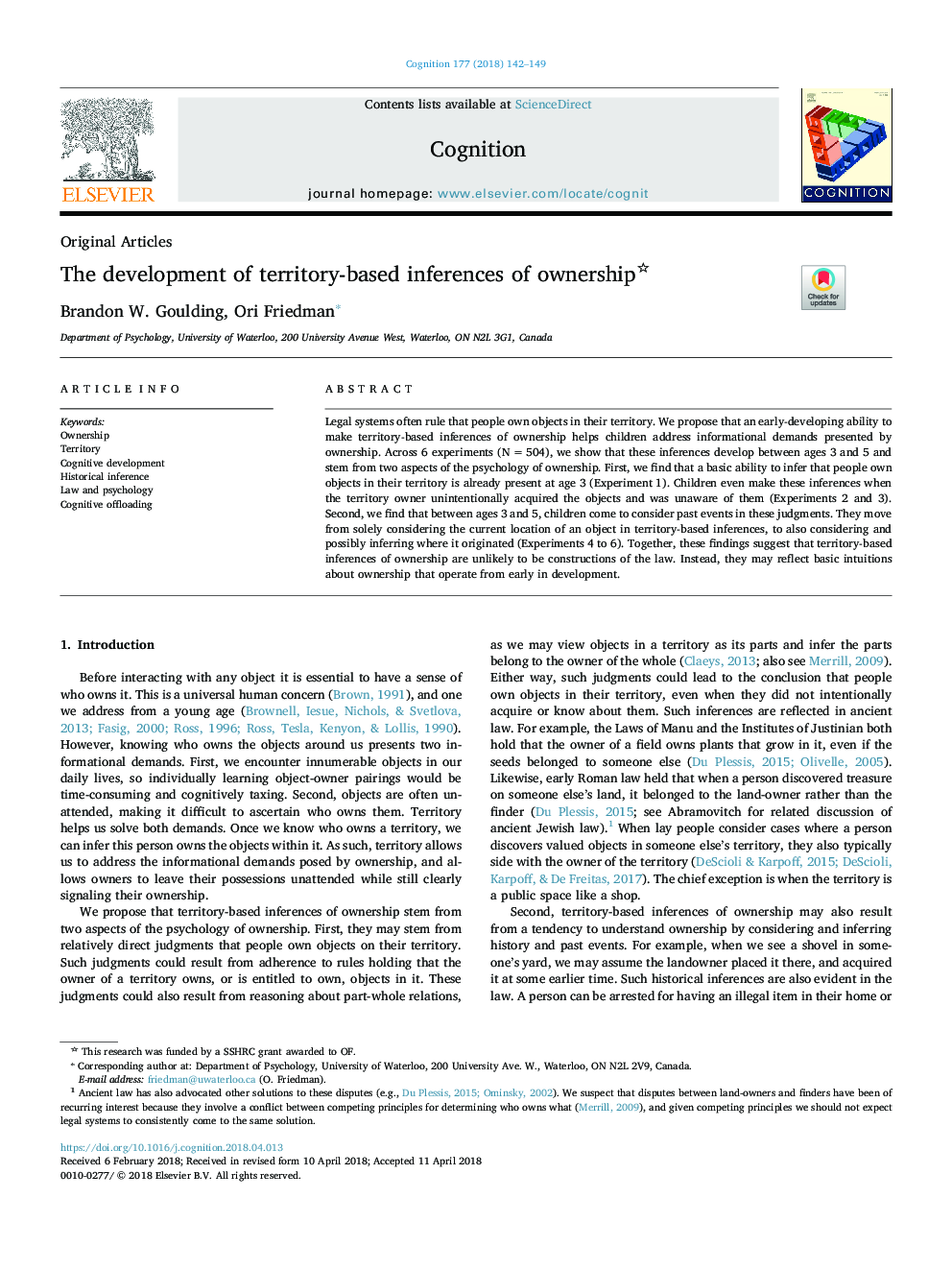| Article ID | Journal | Published Year | Pages | File Type |
|---|---|---|---|---|
| 7285288 | Cognition | 2018 | 8 Pages |
Abstract
Legal systems often rule that people own objects in their territory. We propose that an early-developing ability to make territory-based inferences of ownership helps children address informational demands presented by ownership. Across 6 experiments (Nâ¯=â¯504), we show that these inferences develop between ages 3 and 5 and stem from two aspects of the psychology of ownership. First, we find that a basic ability to infer that people own objects in their territory is already present at age 3 (Experiment 1). Children even make these inferences when the territory owner unintentionally acquired the objects and was unaware of them (Experiments 2 and 3). Second, we find that between ages 3 and 5, children come to consider past events in these judgments. They move from solely considering the current location of an object in territory-based inferences, to also considering and possibly inferring where it originated (Experiments 4 to 6). Together, these findings suggest that territory-based inferences of ownership are unlikely to be constructions of the law. Instead, they may reflect basic intuitions about ownership that operate from early in development.
Related Topics
Life Sciences
Neuroscience
Cognitive Neuroscience
Authors
Brandon W. Goulding, Ori Friedman,
